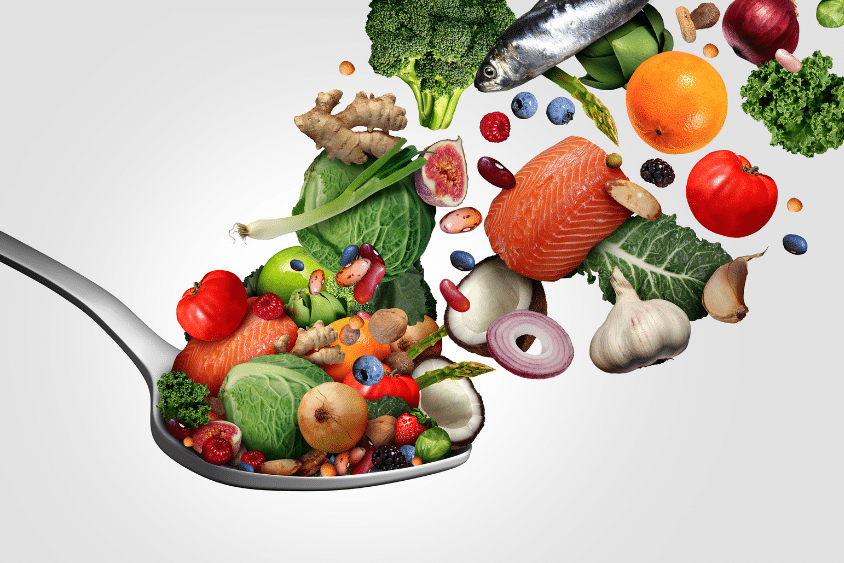Did you know that there are components of food that have anti-cancer properties? They are called bioactive compounds and are those that provide a health benefit despite not being considered nutrients and essential for life. However, their functions include the prevention of cardiovascular diseases, antimicrobial effects and their usefulness in preventing diseases such as cancer or diabetes.
Bioactive compounds are found in small amounts in foods such as fish, ruminant meat, dairy products, egg yolk and vegetables, in the form of phytochemicals.
How to detect bioactive compounds and control the quality of foodstuffs
Forensic engineering allows for rigorous and objective quality control of different foods by analysing their components and durability, identifying possible errors and offering a solution to them. This study consists of different types of analysis:
Physicochemical analysis
The physicochemical analysis of foodstuffs provides information on the rheological properties of the foodstuff and its capacity for deformation and fluidity.
Within the rheological properties, the customer’s perceptions are measured, such as drinkability, spreadability and mouthfeel.
Microbiological analysis
With the idea of detecting pathogens, such as bacteria or fungi, this analysis focuses on external agents that can contaminate the food and on the critical points within the hygiene map.
Nutritional analysis
This study of the food focuses on the analysis of its composition, the compliance of its labelling and the correct control of all regulations. The aim is to guarantee companies that their products comply with all the specifications for their launch and consumption.
Quality control and food safety
Food safety is essential to obtain maximum product quality and preserve health. In this sense, there is a food quality and safety consultancy capable of analysing compliance with current hygiene regulations.
Functional foods and beneficial bioactive compounds
The relationship between food and health is undeniable because nutrients are essential to keep us alive and provide us with energy. This is the origin of the concept of functional foods, which classifies foods that, in addition to their nutritional value, have a beneficial effect on the body.
Not only are there phytochemicals, which are produced by plants, but there are also other bioactive compounds such as omega-3 fatty acids, linoleic acid and milk peptides in food.
Guidelines for food quality control
Below, we share the challenges that food quality control is exposed to when the customer wants to know what phenomena occur during the manufacturing process. With this information, culinary processes can be optimised and better decisions can be made to preserve the nutritional properties of the food.
Processed foods
For the quality control of processed foods, the Forensic Engineering team develops a design of experiments and a method to characterise the chemical and physical properties of the food with the prior study of its conditions, variables and effects.
Thus, the qualities affected after processing of a food can be distinguished in food safety parameters, physico-chemical properties, sensory attributes or nutritional composition.
In the study on the effect of processing on the nutritional quality of a processed product and in the analysis of nutrient concentration, the Infinitia Materials Innovation team takes into account the terms of antioxidant capacity and the total content of phenols and carotenoids in the food through chemical techniques such as UV-VIS spectrophotometry.
Will this trend continue or will foods change in the future?
For Elena Díaz, dietician and nutritionist at Infinitia’s food technology department, food will change in the future along with consumption patterns and production trends, although consumers will be more sensory, nutritionally and sustainably aware.
Among the most notable and established trends in the market are alternative protein, vertical gardens, enriched foods, 3D printing and personalised nutrition.
Infinitia’s work with bioactive components
This is the case of Infinitia’s work to recover borage waste, which is usually used for fertiliser and animal feed. Thanks to the extraction of its polyphenols, the pharmaceutical industry can take advantage of it and producers can obtain new sources of income.
Therefore, viable solutions can be offered to companies that want to introduce or modify foods in the market, either through studies of alternative proteins, 3D food printing, disinfection technologies or food quality determinations.
In Infinitia we know the importance of food on health and all the external factors involved in the loss of quality of products, as well as the need to ensure healthy and sustainable consumption. Contact our forensic engineering team and tell us about your case.

